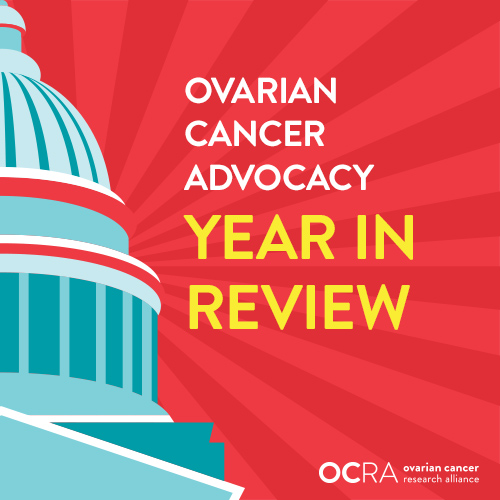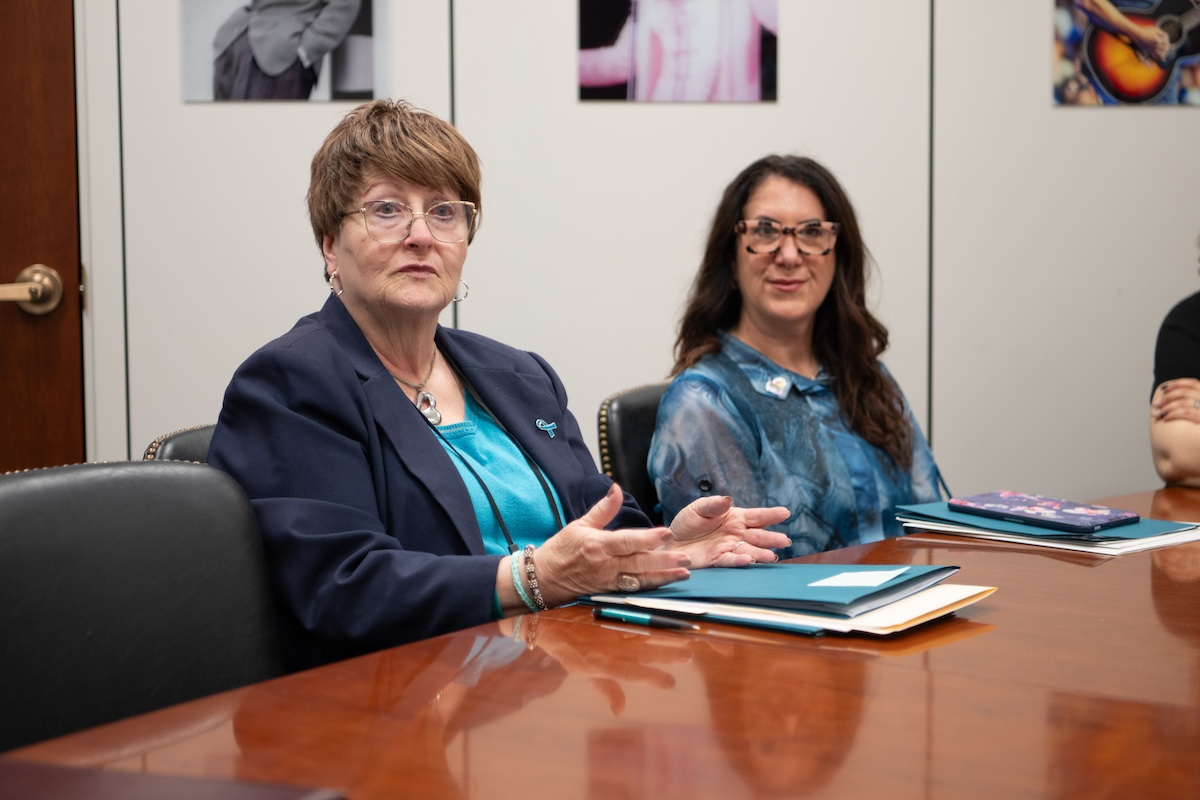
As we gear up for our first ever virtual Spring Advocacy Day — which will welcome more than 200 participants, double our usual crowd! — we couldn’t help but take a moment and look back. In a year when the world all but shut down, we accomplished quite a lot on a policy level, thanks to your advocacy and commitment. Together, we have been a powerful voice for the ovarian cancer community.
The state of ovarian cancer policy in 2020:
- The federal government spent $238M on ovarian cancer research, education, and surveillance. That is, by far, the most that the government has ever committed to ovarian cancer and is a direct result of our constant advocacy. Congress agreed to increases in all of the programs OCRA advocated on behalf of.
- After a two-year advocacy campaign, the federal government increased funding to the Ovarian Cancer Research Program at the Department of Defense by a dramatic 75%. This additional $15M is funding breakthrough research that can save lives.
- Congress enacted the CLINICAL TREATMENT Act, which, for the first time, will require Medicaid to cover routine patient costs for clinical trial enrollees. OCRA pushed hard for its passage.
Since last March, OCRA has made policy advances for the ovarian cancer community. We have:
- Introduced a reauthorization of Johanna’s Law – the Gynecologic Cancer Education and Awareness Act – which significantly increased funding and modernized the program. While the bill hasn’t yet been enacted, it received important bipartisan support and we are primed for passage in this Congress.
- Galvanized 5,435 people to send nearly 11,000 messages to members of Congress urging them to support issues related to ovarian cancer.
- Established a Health Equity Task Force that is working to address racial, geographic, socioeconomic, and other inequities facing the ovarian cancer community.
- Signed off on more than two dozen letters, including:
- A letter responding to CMS’ annual request for feedback on reimbursement changes in physician offices. This letter focused on telehealth (receiving care at home) and highlighted the need for additional payment to physicians who care for more complex patients like those in our community.
- A letter circulated by the Chronic Care Policy Collaborative and HIV+HEP Policy Institute calling on Congress to pass legislation protecting patients in light of the final 2021 Notice of Benefit and Payment Parameters Rule (NBPP).
- The Defense Health Research Consortium (DHRC) letter to the House and Senate Appropriations Committees, expressing support for increased funding for the Defense Health Research Programs, or Congressionally-Directed Medical Research Programs, at the Department of Defense.
- A letter to President Biden and leaders of State Public Health Departments prioritizing COVID-19 vaccines for patients with cancer and survivors of cancer.
- Participated in numerous legislation-based coalitions, and continue to be part of three standing coalitions that advocate for greater federal investments in cancer research; work to guarantee cancer survivors access to high quality care provided by cancer specialists; and address policy issues related to our nation’s most lethal, or recalcitrant, cancers, defined as those that have five-year relative survival rates below 50 percent.
Looking forward, we will be pushing for the introduction of a bill that will expand access to diagnostic testing (genetic and genomic) for ovarian cancer patients and their families, as well as continuing to advocate for policies that will reduce health inequities and increase federal funding into ovarian cancer research and education.
On Spring Advocacy Day last year, we had 120 meetings with legislative offices. They were attended by 63 ovarian cancer advocates representing 34 states and the District of Columbia. We can’t wait to share the collective impact we hope to have in the days, and months, to come.


